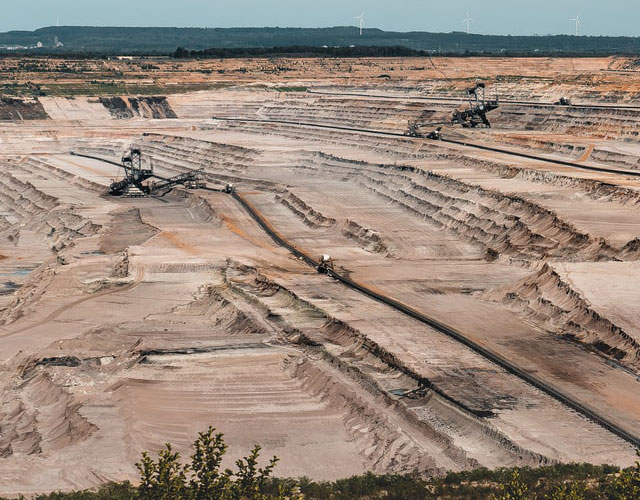What is a multinational company would be a fair question our ancestors could ask. But nowadays, because of the globalization phenomena, it is hard to find someone who hasn’t purchased, seen or heard of brands like Apple, Nike, ExxonMobil or Nestlé.
These types of multinational companies hold business activities in at least one country other than their home country. Usually, production factories are placed in developing countries like China or Indonesia where labour and cheap and social and environmental regulations are more relaxed. Meanwhile, a centralized head office responsible for global management is normally placed in the company’s home country or in some other country with low tax rates.
While many play part of the consumption narrative pushing for constant and irresponsible consumption, many others too provide products and services which indeed add great value to people’s lives. Besides, they deliver jobs and incomes too and they are way faster at innovating than most governmental counterparts – playing, therefore, a crucial role in helping to solve unexpected social problems such as COVID19.
Multinational companies have both pros and cons, despite too many still living by the business as usual paradigm. But this piece is about a new study published in the journal Nature Climate Change confirming how multinationals and their supply chains greatly impact climate change. And that is something definitely worth exploring – and fixing.
Multinationals and CO2 Emissions: How Supply Chains Impact Businesses’ Carbon Footprints
It has been known for years that the transport and energy sectors are among the biggest sources of CO2 emissions: nearly 70% of CO2 emissions come from the combustion of fossil fuels. It has also been known for a few years that agriculture, in particular breeding and deforestation linked to agricultural activities, emit large amounts of CO2, particularly in the form of methane.
However, these indications do not really say the exact use or which specific actors are responsible for such CO2 emissions. Take the carbon emissions coming from the energy, transport or food sector: everyone is involved. But as more research gets done, the better the origin of our anthropogenic CO2 emissions is understood.
So who is pulling the strings? Are there any particular actors in the backstage that can be held particularly responsible for the production and consumption chains creating this endless pollution? A study published in Nature Climate Change provides an important element for crafting the answer: the very significant weight of multinationals on global CO2 emissions. But it is not as simple as that: let’s take a closer look.
Multinational Companies Are Responsible For Almost 20% of CO2 Emissions

The study’s researchers attempted to account for the share of CO2 emissions produced within multinationals and their supply chains. To do this, they counted the flows of direct investment abroad, made by these so-called “multinational” corporations, as well as the CO2 emissions linked with these flows.
As a result, between 2008 and 2016, they figured the share of CO2 emissions associated with the activities and supply chains of multinationals in global emissions varied between 19% and 22%. In other words, multinationals are responsible for nearly a fifth of the planet’s CO2 emissions.
This shows the important role large multinational companies can play in the fight against climate change. By making sure to decarbonize their supply chains (by using low-carbon energies or partnering with low-carbon suppliers) they can have a strong impact and help reduce CO2 emissions. But again – if only it was that simple.
The Link Between Growth, GDP, Globalization and CO2 Emissions
As important as the contribution of multinationals to global emissions may seem, they are actually not that surprising. Indeed, according to the OECD, multinationals contribute nearly 30% to the global GDP and account for nearly 25% of today’s jobs. And as we’ve seen, that comes at a cost.
However, we know that generally, an economic activity produces CO2 so we could therefore expect that the contribution of multinationals to CO2 emissions would be even greater. In view of this data, it seems that in contrast to their economic contribution, multinationals somewhat emit “little CO2”: some 20% emissions against a contribution of 30% for the global GDP.
Moreover, analyzing this data makes it possible to emphasize the links between CO2, GDP, globalization and growth. Indeed, the researchers found out multinationals’ CO2 emissions evolved in a correlated way with the economy in recent years. Thus, the CO2 emissions of multinationals fell following the 2008 crisis and during periods when direct investments abroad also fell. Evidence that to tackle climate change, the way we measure wealth, societal progress and value creation needs to fundamentally change. Give Mazzucato’s The Value of Everything a shot and learn more about this particular issue.
A Consumption-Addicted Society

To think of such an alternative model to measure value and progress, finger-pointing is far from being enough. True, multinational companies and their supply chains are the sources of almost 20% of CO2 emissions. But they are not the only ones benefiting from this system since it is ultimately consumers who benefit from the products and services they often sell cheap (while at an expensive social and environmental price).
It is the whole social system based on consumption and massive production that must therefore be called into question: the society of constant marketing, planned obsolescence and weak incentives for political participation. Regulations, social changes, citizen mobilizations, CSR actions are then all levers to move this immense project forward. Whatever the road(s) taken, we now know multinational companies must be at the centre of these reflections and action paths.
[Image credits to Carl Raw, Mika Baumeister and Marcin Jozwiak on Unsplash]

